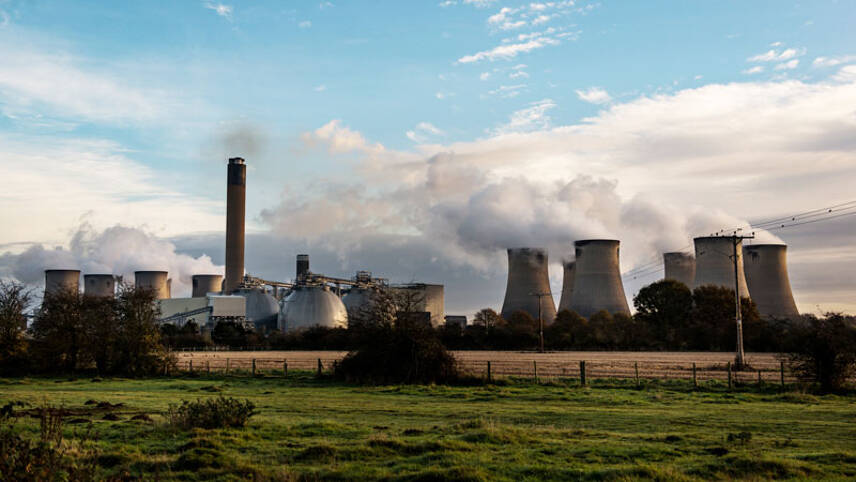Register for free and continue reading
Join our growing army of changemakers and get unlimited access to our premium content

Image: Drax Group
Drax’s power station was originally completely coal-fired but, over the past ten years, the facility’s six generating units were converted to run on biomass. The final two units were converted in early 2023.
The new Government decision, taken on Tuesday (16 January), grants Drax permission to add carbon capture technology to two of the units.
Will Gardiner, chief executive at Drax Group, called the approval “another milestone”.
The business claims that its plans would enable the removal of around eight million tonnes of CO2 annually once both units are fully operational. It is touting a minimum 95% capture rate for emissions at these units and a working lifespan of at least 20 years.
Drax’s power plant is the UK’s single biggest emitter in the power generation sector. This, coupled with the relative commercial infancy of man-made carbon capture technologies, means many in the green economy are skeptical about whether Drax’s plans will deliver the promised emissions benefits.
Coutinho stated in her decision letter a belief that she sees the project as likely to be carbon-negative over its lifecycle, with emissions captured outweighing those across its lifecycle.
The only negative environmental impacts which Coutinho foresees from the project relate to wildlife disturbance during construction, particularly birds.
Drax first started trialling bioenergy with carbon capture and storage (BECCS) technologies in February 2019 and has been scaling up its work in stages ever since. Its plans involve adding two full-scale BECCS units by the end of the decade.
Delivery of the scaled technologies has stalled multiple times due to Government delays in policy strategizing related to carbon capture and biomass. Delays have been attributed in Westminster to the pandemic since 2020 and two changes in Prime Minister in 2022.
Funding debate
The UK Government’s much-anticipated biomass strategy, published in August 2023, stipulates that public subsidies for biomass plants unabated by carbon capture should end in 2027. This will support broader plans to end the use of all unabated, carbon-producing energy generation assets by 2035.
Drax Group’s Gardiner said he anticipates, soon, Government consultations on a ‘bridging mechanism’ for biomass generators to support them in adopting BECCS and to guarantee future revenues.
Environmental group Ember estimates that Drax has received an average of £785m in UK Government subsidies each year between 2018 and 2022. The Government subsidises the Selby power plant by guaranteeing it a minimum of £132 per megawatt-hour of electricity generated.
Ember has raised concerns about this cost increasing soon, should Drax pressure Ministers due to recent price increases for wood pellets. It also foresees the BECCS technologies as potentially high-cost due to how energy-intensive they could be, warning of subsidy increases to a rate of up to £1.7bn per year.
This would add up to more than £43bn should the BECCS plants operate for 25 years.
Several MPs, including Conservatives, have raised this concern in Parliament and are still seeking to block Drax from receiving any additional subsidies. This decision will happen in 2027.
Drax has repeatedly refuted arguments that it does not represent good value for money to the taxpayer or Government. It this week argued that Ember’s analysis “veers between factual inaccuracies and a series of misguided assumptions”.
A separate self-funded analysis from Drax, undertaken by consultancy firm Baringa, was published this week. It claims that its two BECCS units could save whole economy costs of up to £15bn between 2030 and 2050.
Savings would result partly from a mitigated need to add more expensive carbon removal technologies in other sectors and to invest in additional nuclear and/or gas to maintain energy security. Drax argues that gas prices are more volatile than biomass prices, as seen amid the current energy price crisis.


Please login or Register to leave a comment.